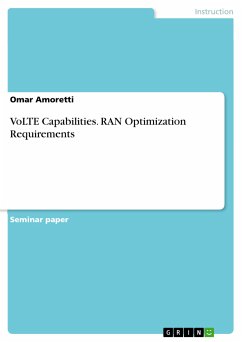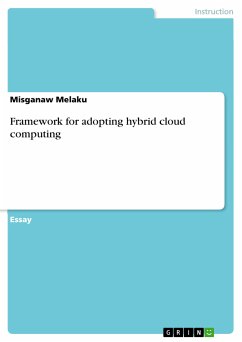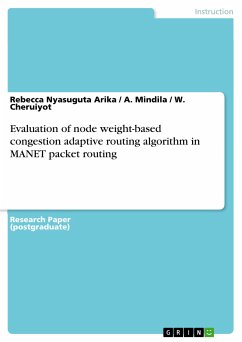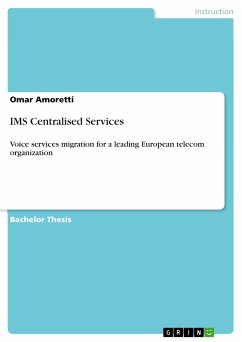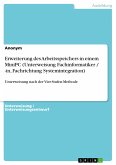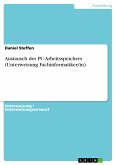Seminar paper from the year 2015 in the subject Instructor Plans: Computing / Data Processing / IT / Telecommunication, grade: 1,5, University of Applied Sciences Technikum Vienna (Telekommunikation und Internettechnologien), course: Scientific Publications and Research in Telecommunications, language: English, abstract: The increasing gap among capacity and demand poses an important call for novel network technologies to allow mobile operators to improve performance (from the end-users' point of view) on a cost-effective basis. In fact, Voice over Long Term Evolution (VoLTE) is a key component for an innovative set of base services defined for all-IP networks: the objective relies on making such new services as accessible as voice and SMS are nowadays, while also offering a flexible interaction with Internet applications. Indeed, LTE focus on a (rather flat) all-IP access technology aiming at delivering a bandwidth-efficient method of carrying multiple types of user traffic at the same time. In other words, the capability of deploying Voice over IP (VoIP) services, while also supporting high-rate data throughputs, characterizes one of the critical drivers for the development to LTE. Within this context, the IP Multimedia Subsystem (IMS) and Session Initiation Protocol (SIP) are essential technologies for deploying VoIP in an LTE setting. Nevertheless, the LTE RAN features are ultimately responsible for creating 'value added' services in relation to VoIP. Therefore, this paper illustrates in the second chapter the advantages of the IMS-based VoLTE approach as well as its (strategic) positioning compared to initial methods and over-the-top (OTT) providers. Furthermore, the third chapter explains that optimization of radio features and parameters is required to offer reliable VoLTE connections based on high success rates. This is especially important for highly-competitive markets like the Austrian telecommunication sector: annual network performance tests (conducted by the P3 Group for example) may unmask a mobile operator's (network) vulnerabilities and critically influence its customer's preference and the likely churn rate. Finally, conclusions are drawn based on the key findings described in this paper.
Dieser Download kann aus rechtlichen Gründen nur mit Rechnungsadresse in A, B, BG, CY, CZ, D, DK, EW, E, FIN, F, GR, HR, H, IRL, I, LT, L, LR, M, NL, PL, P, R, S, SLO, SK ausgeliefert werden.

